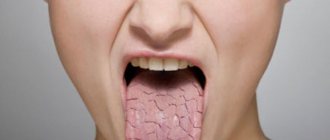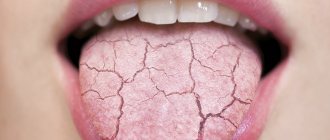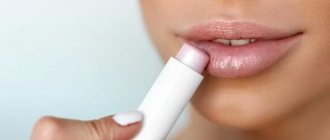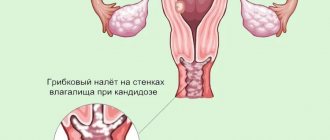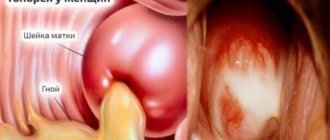Intimate gel ←Articles ←Why do women need intimate gels ←Dryness in the intimate area
Among the most common problems that cause discomfort to the fair half of humanity, dryness in the intimate area (vaginal dryness) ranks high.
Read in the article:
- Natural lubrication - vaginal secretion
- Water-based intimate lubricants
- Causes of dryness in the intimate area
About 20% of women, regardless of age, encounter this problem. Among representatives of the older generation, who know what menopause and menopause are with a sharp decrease in the female hormone in the body, the percentage of people experiencing dryness in the intimate area is much higher.
⇧
Natural lubrication - vaginal secretion
The vaginal mucosa, cervical canal and fallopian tubes are constantly moisturized naturally. This milky discharge is called vaginal or vaginal secretion . The secretion is secreted by glands located in the fallopian tubes and cervix. Additional hydration and maintenance of proper microflora is created by fluid penetrating from the blood through the tissues of the vaginal walls.
Natural vaginal lubrication is produced in a healthy woman in an amount of about 5 milliliters per day. The amount of secretion secreted depends on the menstrual cycles, sexual activity and other factors affecting women’s well-being and mood. This secret protects the intimate area from infections and keeps the vagina clean.
Under normal conditions, natural vaginal lubrication is virtually colorless and odorless. If vaginal secretions acquire a noticeable color and odor, there is a reason to check with a gynecologist.
A lack of natural lubrication leads to unpleasant symptoms of vaginal dryness: itching and burning in the intimate area, pain and light bleeding during sexual intercourse. This is also a signal to contact a doctor.
⇧
Diagnostics
Even if there is a full range of symptoms indicating atrophic vaginitis, the final diagnosis should be made exclusively by a doctor. Diagnosis of this disease is carried out through:
- examination on a gynecological chair;
- bacterioscopy (smear on vaginal flora);
- colposcopy and colpocytology;
- checking the level of a type of estrogen - estradiol.
For a more thorough examination of the reproductive system of patients, the attending physician may additionally prescribe an ultrasound or tomography of the pelvic organs.
Water-based intimate lubricants
In general, on the market for intimate moisturizing gels and lubricants there are many products from different manufacturers that differ in purpose and composition, but the water-based lubricants segment is the most numerous and popular, if you do not take into account lovers of “extraordinary” sex.
Why should you prefer water-based lubricants? For supporters of everything natural, hygienic and hypoallergenic, the reasons are obvious:
- 1
Such drugs can be bought at any pharmacy; there is no need to look for special stores for adults. You can order it for home delivery in different dosages from small sachets to tubes of 20 and 50 mg.
2
The basic component of these preparations is purified water, no perfumes or food additives for taste. The likelihood of various allergic reactions from the use of water-based lubricants is zero, at least minimal.
3
Classic water-based formulations are colorless and odorless and do not leave stains on laundry when dry. It is not even necessary to wash them off with plain water.
4
Neutral chemically and biologically, water-based lubricants do not interfere with conception and can be used with latex condoms, which cannot be said about oil-based (fat)-based lubricants.
What means to combat the lack of moisture in the intimate area is up to you to decide. Read reviews on the Internet, study the instructions for use and the composition of the lubricant on the packaging, consult with doctors. You just have to remember that vaginal lubricants relieve the symptoms of dryness and make life easier, but do not eliminate the causes of the problem. To completely get rid of dryness in the intimate area, you need to eliminate the root causes of its occurrence.
⇧
What happens if the disease is not treated?
Dryness itself as a symptom is not dangerous. But if the disease is not treated, the symptom will progress and can provoke a number of diseases and unpleasant manifestations.
We have already mentioned constant headaches. If the disease is not treated and dryness is not eliminated, the patient does not get enough sleep, becomes irritable, feels depressed and overwhelmed.
If the disease is not treated, a person temporarily loses the ability to distinguish odors.
The overdried mucous membrane, covered with microcracks, is most susceptible to the harmful effects of infectious agents; accordingly, people increasingly suffer from viral diseases.
If you do not try to get rid of the annoying symptom and do not begin to treat this condition in a timely manner, the mucous membrane may begin to thin out, which will lead to its atrophy. And this, in turn, will cause damage to the nasal bones.
A feeling of dryness in the nasal cavity is not as harmless a symptom as it might seem at first. Therefore, the question is: “How to get rid of severe dry nose?” quite relevant.
Causes of dryness
Like any female problem, there are many reasons for dryness in the vaginal area (medical, physiological, psychological):
1
Hormonal disorders
Vaginal dryness in women can appear with age-related changes, during lactation or after removal of the ovaries. With a high probability we can say that in this case the low level of female sex hormones (estrogens) produced by the follicular apparatus of the ovaries is to blame. Issues of hormonal therapy should be resolved only with your doctor.
Hormonal imbalance can develop in women of all ages due to any illness. You also cannot do without the help of doctors...
2
Adverse reaction to medication use
Taking many medications as prescribed by doctors can lead to a decrease in the production of vaginal secretions. Often in the instructions for the use of medications this effect is indicated in the list of possible side effects.
The list of drugs that suppress the production of estrogen and can cause the effect of vaginal dryness includes some cardiovascular drugs, blood pressure lowering drugs, antihistamines, diuretics, and contraceptive drugs. It is up to you and your attending physician to decide what is primary and what is secondary...
3
Smoking and other bad habits
Everything is clear here. Any factor that adversely affects the condition of blood vessels impairs blood supply and all metabolic processes in the body. Drinking alcohol in excess, among other things, leads to dehydration and a decrease in the level of natural vaginal lubrication. Conclusion: get rid of bad habits - restore your health and save money...
4
Infections, fungal diseases of the genitourinary system
Everyone knows that neglect of the rules of intimate hygiene and promiscuous sexual intercourse sooner or later lead to various fungal, infectious, including sexually transmitted diseases. Of course, vaginal dryness in such cases is not the only consequence. Many publications in the medical library are devoted to methods of prevention and treatment of such diseases...
5
Allergy to hygiene products or perfumes
Too much, as well as too little, in any business can lead to unpleasant consequences. Excessive use of various shampoos, skin care products or perfumes containing synthetic fragrances can cause allergic reactions: burning, dryness, redness of the skin.
Many components (based on phthalates), which are included in high concentrations in some perfumes, hygiene products or intimate gels, can even cause hormonal disorders when accumulated in the body.
6
Psychological trauma, stress
Often, not only from doctors, we hear the phrase: “All diseases come from nerves!” There is a lot of truth in this. Strong mental shocks can lead to various, most unpleasant consequences for women's health and physiology. Hormonal imbalances and, as a result, dryness in the intimate area are just one of them...
7
Excessive exercise
Everything that has been said about nervous and mental stress applies equally to physical activity. The capabilities of the human body are not limitless. Big sport and therapeutic, health-improving physical education are two different things. Dose physical activity until various systems and organs of your body begin to fail one by one...
Water – health and quality of life
Whatever the cause of problems with vaginal dryness, intimate lubricants relieve discomfort and unpleasant sensations in the intimate area, which has a beneficial effect on a woman’s psychological state and quality of life, not only intimate...
Preventive actions
Timely contact with a gynecologist and treatment of causes that can cause problems with vaginal dryness is the best prevention and treatment. Itching, burning and irritation may be a sign of a serious illness. Therefore, even such seemingly minor symptoms require contacting a gynecologist.
To prevent psychological causes, it is recommended to learn more about what happens to the body during menopause, and how to relate to these changes. According to sociological surveys, 72% of women who have reached menopause consider themselves as attractive as before. 82% of women do not feel that they have become less feminine. 8 out of 10 respondents noted that stopping menstruation gave them a sense of freedom that was previously unavailable. And 6 out of 10 women believe they feel much better than before menopause. Any changes have not only disadvantages, but also advantages. 45-50 years old is far from old age.
Find out more about intimate hygiene and women's health
- Problems of the female genitourinary system.
- Microcracks in the vaginal area: causes, how to cope?
- Vaginal secretion: correct composition, disorders, recovery
- Inflammation of the vulva, genital infections
- What to do when menopause occurs?
- What lubricants help with menopause?
- Intimate care for women: useful tips
- Common mistakes in feminine intimate care
- Cleanliness in the intimate area. What does a vagina need besides water?
- Intimate sphere: responsibility of a gynecologist, sexologist, psychologist
- Intimacy - advice from a sexologist.
- Hygiene, health, quality of life. Austrian pharmacology.
- Modern feminine intimate hygiene products
- Intimate hygiene and sex: history, traditional and newest intimate lubricants
- Itching and burning in the intimate area: causes, treatment, prevention
ALL ARTICLES
Why is the vagina of a girl or woman dry?
Dry vagina , dry vagina , vaginal dryness is a pressing problem for many girls and women
before sex, during sex, before sexual intercourse, during sexual intercourse. Men and women, girls and boys often ask us at appointments: “ Why is the vagina dry ? Why is my vagina dry ? What to do if your vagina is dry during sex ? Why is the vagina dry during sex , during sexual intercourse, after childbirth, during menopause? Dry vagina, what to do and who is to blame, what to lubricate? How to moisturize your vagina? How to moisturize the vagina and increase the moisture of the vaginal mucosa? Why doesn’t gynecology help if you have vaginal dryness ?”
About intimate gels, lubricants, lubricants
- Details about intimate lubricants: types, composition, purpose, application
- Gel, lubricant, lubricant..? How to distinguish and choose products for intimate pleasures?
- We buy lubricant for sex. Which one to choose?
- Intimate lubricants: who controls the quality of products for intimate use?
- Which lubricants are sold only in pharmacies?
- Water-based lubricants aren't just for sex.
- Silicone or water-based lubricants, which is better?
- The Best Water-Based Lubricants in 2022
- Are there absolutely hypoallergenic lubricants?
- Why do women need intimate gels?
- Gel lubricant for women is a must have!
- Women's problems. When is intimate lubricant needed?
- Love without sex. What is missing..?
- Intimate cosmetics. How to make sex enjoyable and varied?
- Universal lubricants for sex
- We compare lubricants by price in pharmacies
- How to choose the perfect lubricant?
- The world's best brands, manufacturers of intimate gels, feminine hygiene products and cosmetics
- Where to buy intimate lubricant: in a pharmacy, sex shop or supermarket?
- How to use lubricant correctly?
- Hygiene, health, quality of life. Austrian pharmacology.
- Instructions for use of intimate lubricant "Montavit gel"
- Consumer reviews, analogues of the Austrian invisible lubricant “Montavit Gel”
ALL ARTICLES
Treatment
Depending on what caused vaginal dryness, as well as taking into account the age, hormonal levels and concomitant diseases of the patient, the doctor selects the appropriate therapy. In case of atrophic vaginitis due to hypoestrogenism, the following treatment tactics can be used:
- Hormone replacement therapy
. Taking medications (oral contraceptives) with a high content of estrogens or combined estrogen-progestogen drugs. - Antibiotics
. Their use is advisable for nonspecific colpitis - inflammation of the vagina caused by opportunistic microorganisms. - Local anti-inflammatory therapy
. Gels and emulsions, creams and suppositories, baths and douches - there are many products that help relieve inflammation and relieve unpleasant symptoms. - Restoration of microflora
. Intravaginal administration of products with a high content of lactic acid bacteria restores normal microflora and prevents the further development of pathogenic microorganisms, strengthening local immunity.
Along with medications, in the complex therapy of atrophic vaginitis, adjusting the patient’s diet and lifestyle is of great importance. So, during treatment, a woman should avoid eating spicy, fatty and salty foods. To prevent the disease, it is necessary to undergo regular gynecological examinations, wear underwear made from natural fabrics and not neglect the rules of personal hygiene.
Reasons for the development of the disease
We list the common causes that contribute to the occurrence of the disease:
- Heredity: often the disease is passed on from generation to generation.
- Repeated viral or bacterial infections contribute to atrophy of the nasal mucosa.
- Hormonal imbalances, such as endocrine system disorders, that occur in a teenager's body during puberty.
- Trauma and surgery.
- Lack of vitamin D and iron in the body.
- Impact of stress factors.
- Harmful environmental conditions:
- tobacco smoke,
- chemical vapors
- dust and smoke in the air,
- prolonged inhalation of hot or cold air.
Long-term use of vasoconstrictor drops can also cause atrophic rhinitis.
It should be noted that identifying a specific cause that provoked the disease increases the effectiveness of treatment.
What is atrophic rhinitis?
Atrophic rhinitis is a long-term inflammatory disease of the nasal mucosa, accompanied by its thinning. Main signs of the disease:
- increased dryness of the nasopharynx,
- viscous discharge of yellow or green color,
- the appearance of specific crusts,
- short-term bleeding.
Over time, most of the structure of the nose is affected: nerve endings, blood vessels, bone tissue. The disease affects adults, mainly women, and children, most often teenagers. However, sometimes atrophic rhinitis is detected in a child in early childhood (from 1 year).
An alternative name for chronic atrophic rhinitis is “dry” runny nose. This is explained by scanty secretions with severe breathing problems.
The disease is divided into two types:
- Primary.
It forms independently; the causes have not been identified to date. - Secondary.
Appears as a consequence of concomitant pathologies or surgical interventions.
Timely detection and subsequent treatment of atrophic rhinitis is extremely important because the disease quickly becomes chronic. If the mucous membranes do not perform protective and thermoregulatory functions, the functioning of most respiratory organs will be disrupted.
